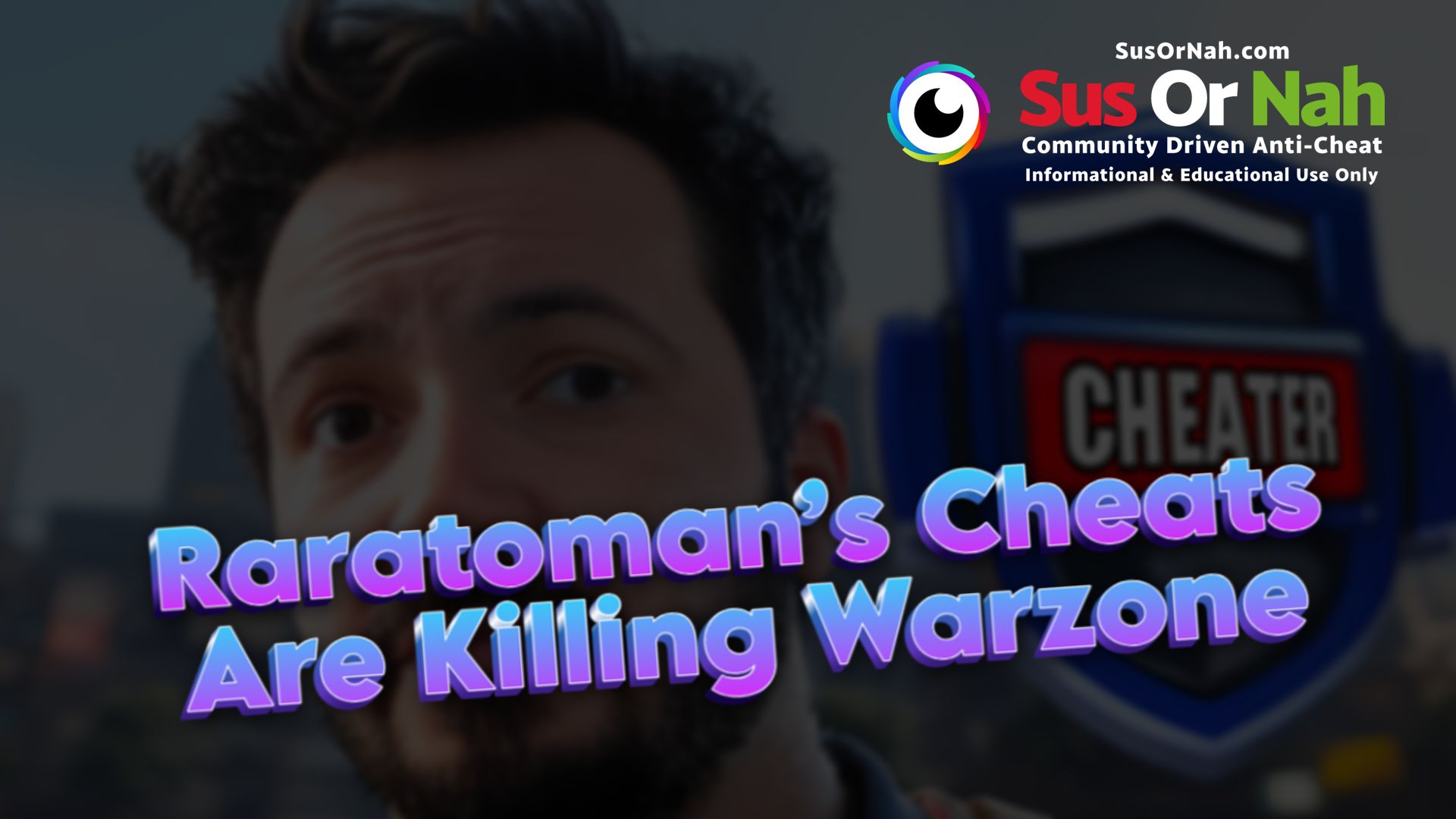
The integrity of competitive gaming relies on fairness. Without it, the entire experience becomes hollow, frustrating, and meaningless. Yet, some individuals, such as YouTuber Raratoman, have chosen to disregard this principle entirely, promoting tactics that manipulate matchmaking and provide unfair advantages in Call of Duty: Warzone. These methods—ranging from VPN abuse to reverse boosting to unauthorized audio enhancement tools—represent a brazen violation of Activision’s Terms of Service.
Make no mistake: these are not clever strategies, nor are they harmless optimizations. They are examples of calculated cheating, deliberately designed to exploit the system and undermine the competitive balance that makes games like Call of Duty worth playing. Such practices erode trust in the gaming community, diminish the value of legitimate player achievements, and harm the livelihoods of developers who work tirelessly to create fair and balanced experiences.
This article will dissect the tactics promoted by Raratoman, explain why they are ethically indefensible, and examine the broader consequences of such behavior.
In his video, Raratoman detailed several methods to gain unfair advantages in Call of Duty: Warzone. These tactics exploit vulnerabilities in matchmaking systems and game design to create easier matches, inflate stats, and trivialize the efforts of honest players. Below is an in-depth look at each method he endorsed:
One of the most egregious tactics Raratoman promoted was the use of VPNs and geofencing tools, such as NoLag VPN, SBMM-Auth, and other similar services. These tools allow players to manipulate the matchmaking system by connecting to servers in regions with lower-skilled opponents or during times when fewer competitive players are active.
For example, a player in North America might use a VPN to connect to servers in Oceania, where the player pool is smaller, and the average skill level is lower. This essentially guarantees easier matches, with opponents who are less capable of providing a challenge.
Activision’s matchmaking system is designed to pair players with opponents of similar skill levels, ensuring fair and balanced matches. VPNs and geofencing tools circumvent this system entirely, giving users an artificial advantage.
This practice:
What makes VPN and geofencing abuse even more appalling is the rise of commercialized services. Companies now charge players for access to dedicated servers or geofencing capabilities, turning cheating into a business. These services market themselves as tools for improving connection quality, but their real purpose is to manipulate matchmaking.
For example, SBMM-Auth allows users to select specific regions and server types, ensuring they are matched against weaker opponents. Similar services claim to “optimize” gameplay but are nothing more than disguised cheating platforms.
Another method promoted by Raratoman was two-boxing, also known as reverse boosting. This involves using a secondary account with deliberately poor stats to manipulate matchmaking. By pairing their main account with one or more dummy accounts, players can trick the system into placing them in lobbies filled with lower-skilled players.
In two-boxing, the dummy account is intentionally sabotaged—by repeatedly dying in matches, quitting games early, or avoiding any meaningful engagement. This creates a statistical profile that the matchmaking algorithm interprets as a low-skill player. When the dummy account is paired with the main account, the system averages their stats, resulting in placement in low-skill lobbies.
Three-boxing takes this a step further, using two dummy accounts instead of one to drag the matchmaking average even lower. Some players automate this process by using services that manage dummy accounts for them.
Two-boxing is a clear violation of Activision’s rules and the principles of fair competition:
Perhaps the most dangerous tactic promoted by Raratoman was the use of unauthorized audio enhancement tools. These tools, such as his own app and others like “Art is War,” claim to amplify in-game sounds, such as footsteps and reloads, to give players a tactical advantage.
Audio enhancement tools manipulate how sound is processed at the system level. By boosting specific audio frequencies, they make certain sounds—such as enemy movements—far more prominent, allowing users to detect threats with near-superhuman precision.
Audio enhancement tools are not optimizations—they are cheats. Here’s why:
Cheating is not a victimless crime. It affects every player in the game, from casual participants to dedicated competitors.
Cheating destroys the foundation of competitive gaming. When players use VPNs, two-boxing, or audio tools, they render skill irrelevant. Honest players are left frustrated, knowing that their efforts to improve are meaningless in the face of such blatant exploitation.
Cheating fosters distrust within the community. Players begin to assume that every loss is the result of unfair play, leading to toxic behavior and resentment. This damages the overall player experience and discourages newcomers from joining the game.
Developers like Activision invest heavily in anti-cheat systems like RICOCHET. These resources could be spent on creating new content or improving game mechanics, but instead, they are diverted to combating cheaters.
As cheating becomes more widespread, it drives players away from the game. Declining player populations hurt the game’s longevity, reduce revenue for developers, and ultimately harm the gaming ecosystem as a whole.
Activision has made it clear that cheating will not be tolerated. Players caught using these methods face severe consequences:
Raratoman’s tactics are not clever. They are not innovative. They are an attack on the integrity of competitive gaming and an insult to honest players who invest time and effort into improving their skills.
Cheating in any form—whether through VPNs, reverse boosting, or audio enhancement tools—undermines the values that make gaming worthwhile. Developers, players, and content creators must stand together to reject these practices and protect the future of competitive gaming.
Fair play is not optional. It is the foundation of games like Call of Duty. Without it, victory is meaningless, and the joy of competition is lost. It is time to draw a line and say, unequivocally, that cheating has no place in gaming. The community deserves better. The developers deserve better. And the game itself deserves better.